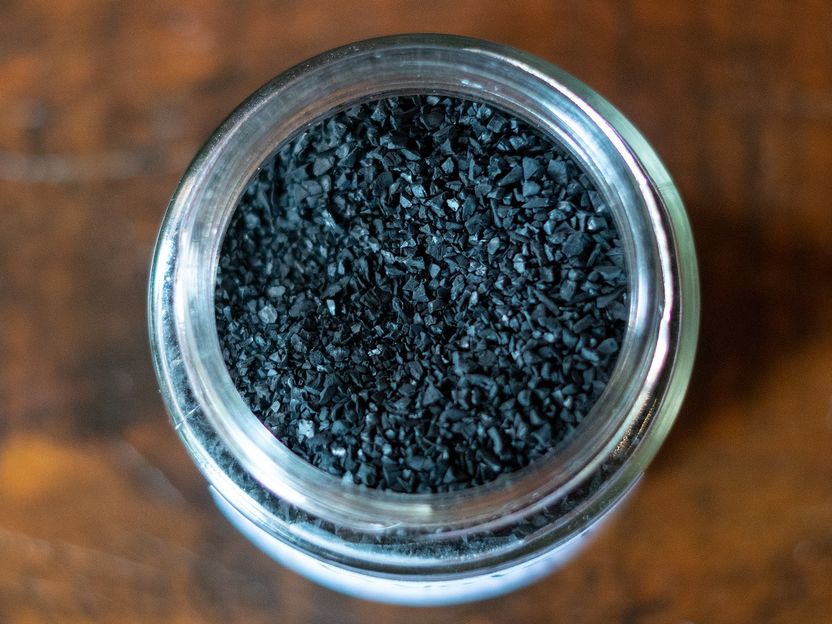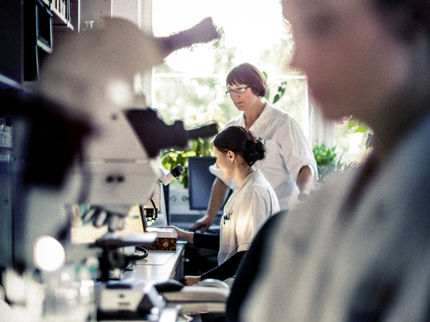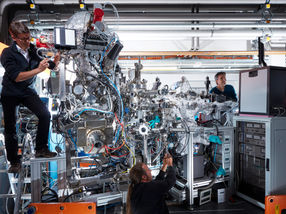Bio activated carbon from renewable raw materials
One million euros in funding for research project by carbonauten GmbH and the University of Hohenheim
Advertisement
Producing bioactivated carbon from renewable raw materials and meeting the necessary energy demand in a climate-neutral way - this is the goal of a joint research project of carbonauten GmbH and the Department of Conversion Technologies of Renewable Raw Materials at the University of Hohenheim. Following the approval of funding by the bioeconomy Innovation and Investment Programme for Rural Areas (BIPL BW) of the Baden-Württemberg Ministry of Food, Rural Areas and Consumer Protection in December 2021, the two-year research project is now starting. The result is to be a plant module with which biocarbons obtained from bioresidue can be activated by steam. The basis for this is the minus CO2 technology of carbonauten: carbonauten convert bioresidue into biocarbons, which permanently binds CO2 from the atmosphere and creates a surplus of renewable energy.

Symbolic image
pixabay.com
"The demand for activated carbon as an adsorbent for chemicals and medicine, wastewater and exhaust gas treatment or air conditioning technology is constantly increasing," explains Torsten Becker, managing director of carbonauten. "But so far it is usually created from fossil raw materials, and the processes require large amounts of energy, which also mostly come from fossil sources. China is the world's largest producer, predominantly with environmentally unfriendly processes. We are convinced that this can be done in a more ecologically sustainable and economical way with our system. Therefore, we are pleased to prove this in our largest research project to date together with the University of Hohenheim."
In the first step, a research group from the Department of Conversion Technologies of Renewable Resources at the University of Hohenheim, headed by Prof. Dr. Andrea Kruse and in cooperation with carbonauten, is creating small prototype retorts. These are reactors in which steam and heat are to act as evenly as possible on the coal in order to activate it. The optimal type of biomass as a basis for the activated carbon will also be determined in the process.
In the next step, the carbonauten will construct a prototype in 1:1 format at their pilot site in Eberswalde. Their carbonisation plants provide the technological basis, the energy demand of the activation retorts is covered by the energy surplus from the carbonisation of bioresidue - all in all, a process that is not only climate-neutral, but even CO2-negative thanks to carbonauten's underlying minus CO2 technology.
Becker explains: "Our strategic goal is to set up decentralised plants for the production of bioactivated carbon in Baden-Württemberg as soon as possible, which use regionally produced biomass residual flows in the sense of a circular bioeconomy. The production of bioactivated carbon removes carbon from biomass from the carbon cycle for a long time. The replacement of fossil activated carbon saves CO2 emissions and prevents environmentally problematic production. In addition, new sources of income are created in rural areas."
The cooperation is also an important step for Prof. Dr. Andrea Kruse: "We have been working on the production of activated carbons and high-performance carbons for many years. We also want to bring this knowledge into application. The carbonauten are particularly interesting for us as partners because they build compact and modularly expandable plants and represent a decentralised concept. In the bioeconomy, it is important that transport distances are short, but that the plants do not become expensive due to their size (economy of scale). This requires new technologies, and the carbonauten have developed a particularly good one."
Other news from the department science
Most read news
More news from our other portals
Something is happening in the chemical industry ...
This is what true pioneering spirit looks like: Plenty of innovative start-ups are bringing fresh ideas, lifeblood and entrepreneurial spirit to change tomorrow's world for the better. Immerse yourself in the world of these young companies and take the opportunity to get in touch with the founders.































































